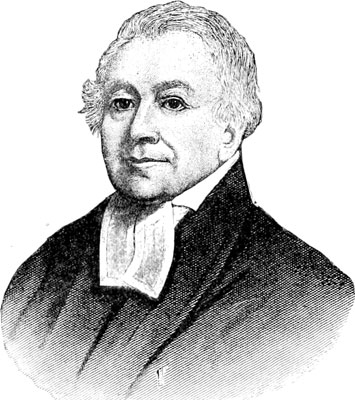It is not possible, in the nature of things, that human laws, or principles of honor, can be adequate substitutes for religion. … Infidelity is a formidable enemy to the true principles of liberty. It erases from their foundation the main pillars that can support a free government. Freedom deigns not to dwell with general immorality: It cannot be enjoyed without virtue, nor can virtue be maintained without religion.
–Manasseh Cutler

Manasseh Cutler filled the pulpits of New England with calls for liberty, closed the Northwest Territory to slavery, helped establish two colleges, and made significant contributions to multiple fields of science.
Cutler was born on May 13, 1742, in Killingly, Massachusetts, to a long line of clergy. Though he studied law at Yale, he became minister of the Congregational Church in Ipswich (now Hamilton), Massachusetts, on September 11, 1771. He would maintain that position with periodic interruptions until his death, but his insatiable curiosity (and the low pay of clergy) kept him active well outside the vestry.
Cutler supported American independence and became a Revolutionary War chaplain the instant hostilities commenced, marching with local minutemen in time to see British troops retreating from Cambridge.
After he served two regiments and received an award for gallantry, he returned home. The nearest doctor had joined the war effort so, alongside his ministerial duties, Cutler studied and practiced medicine proficiently. During the 1779 smallpox outbreak, he cared for 40 patients at a time.
Profit-generation produced Cutler’s greatest contribution to humanity. After the war, his friend General Rufus Putnam and a group of Revolutionary War veterans formed the Ohio Company of Associates and enlisted Cutler to purchase rich, fertile land west of the Alleghenies with the debt certificates they received as payment. The investors intended to sell tracts to settlers, and Congress coveted the much-needed funds, but the speculators would agree only if the territory’s laws were settled in advance.
The sometimes unseemly (if neither illegal nor uncommon) behind the- scenes maneuvering produced a landmark of liberty: the Northwest Ordinance of 1787. Two years before the composition of the Bill of Rights, the Northwest Ordinance safeguarded freedom of religion and habeas corpus, while banning cruel and unusual punishment.
Historians ascribe at least one of its clauses specifically to Rev. Cutler’s intervention: “There shall be neither slavery nor involuntary servitude in the said territory.” Cutler presented the Congress of the Confederation with an ultimatum. “Make the land worth having”, he said. “Exclude slavery forever from the territory northwest of the Ohio River, and we will buy your land and help you pay your debts. Allow it to enter, and not a penny will we invest.”
Speaking a generation later, Daniel Webster said this prohibition “fixed, forever, the character of the population” by excluding “involuntary servitude. It impressed on the soil itself, while it was yet a wilderness, an incapacity to bear up any other than free men.”
Cutler promptly set out to survey the land, visiting Marietta, Ohio, on the Muskingum River. While there, he played a pivotal role in the establishment of two universities: Ohio University and Marietta College. His love of learning led him to make significant contributions to botany and astronomy, documenting 350 different species of plant life. His detailed and wide-ranging studies earned him a place in the American Academy of Arts and Sciences.
President George Washington named Cutler a judge of the U.S. Court for Ohio, but he declined. Cutler represented Massachusetts for two terms in the U.S. House of Representatives as a Federalist, retiring in 1805 to supply his church’s pulpit and tend to the boarding school he began in his home. He maintained the indissoluble bond between religion and liberty until the day he died on July 28, 1823.







